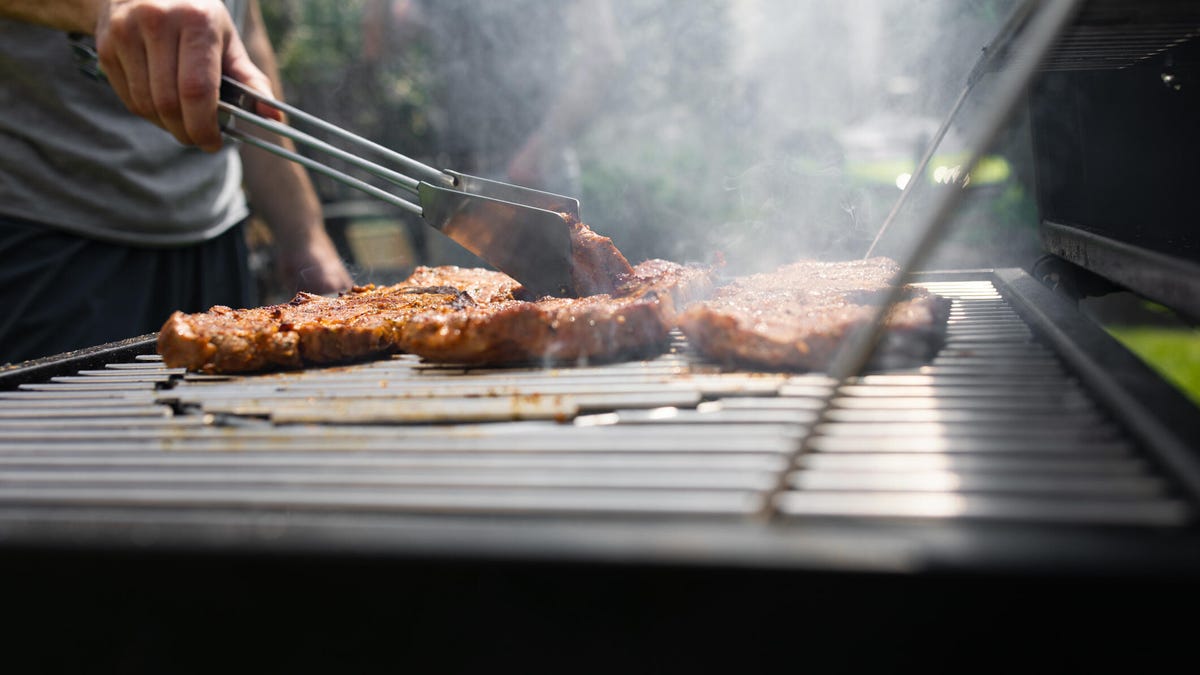Labor Day Weekend may be the last big summer moment for grills, though mine stays active well through October. If you're firing up your Weber or Traeger over the long weekend, there are a few common mistakes that can compromise the food you pull of it.
Grilling is a simple science, and keeping your grill clean is only half the battle. Once the food is on those hot grates, professionals say moving it around and not paying attention to the heat can lead to dry steak and tough burgers. Even experienced grillers make these fundamental technique errors, but most are easily corrected.
Drawing from professional culinary expertise, I've identified seven frequent grilling mistakes and the proven techniques to overcome them.
1. Not properly cleaning your grill grates
We have a guide to cleaning your grill, a task you should complete after every session.
Before you even get the heat going, consider the condition of your grill grates. Last year's caked-on proteins don't count as extra seasoning and may contribute to off flavors and textures. “It is essential to prepare your grill surface before cooking by properly cleaning it and lightly oiling it,” says Brian Sullivan, executive chef and vice president of Culinary & Beverage Innovation at Red Robin.
“If your grill grates are dirty or your grill surface is dry, your meat and vegetables can stick or develop an uneven sear,” he says. You should preheat your grill for 10 to 15 minutes and utilize a grill brush to remove residue.” Use a pair of grill tongs and a paper towel or clean cloth to apply a light coating of a neutral, high-heat cooking oil such as avocado or canola to the grates.
2. Not preheating properly
Preheating your grill is essential for achieving that coveted crust without overcooking the meat.
Speaking of preheating, do it like you mean it, regardless of whether your grates need cleaning. “A cold or unevenly heated grill causes food to stick, cook unevenly, or dry out,” says Chef Antimo DiMeo of Bardea Restaurant Group in Wilmington, Delaware. “You also miss out on proper searing, and it's that crust that equals flavor when you grill.”
DiMeo suggests preheating your grill for 10 to 15 minutes with the lid closed until it reaches the proper cooking temperature, usually 450 to 500°F for high heat. The heat will decline somewhat once you open the lid.
3. Seasoning too soon
You don't need to season your meat hours beforehand as the salt may start to cure it.
Marinades and dry rubs can create tremendous flavor, but hold off on seasoning until the last minute for simple salt and pepper. “Only season the outside of the meat right before it goes on the grill,” says Sonny Ingui, executive chef at Philadelphia's Urban Farmer.
This goes for whole meats like steaks so that moisture doesn't draw out and wet the surface, but also for burgers. “Don't mix in the seasoning beforehand, or you may start to cure the meat,” says Ingui, creating a texture that's more like meatloaf than burger.
4. Moving the food around too much
Try to leave that meat alone until it's time to flip.
High-heat grilling is a relatively quick cooking method, but patience is still needed to develop the smoky char or definitive grill marks you want. “You need to let the food develop a crust before flipping,” says DiMeo, “which usually takes three to five minutes depending on the thickness of the protein and the heat.”
Most proteins need little more than a single flip, plus one rotation for those cross-hatched grill marks. Resist the urge to constantly check for those marks by flipping or moving everything around. “Moving prematurely prevents proper searing, leads to uneven cooking, and increases the risk of tearing the protein or losing moisture,” he says.
5. Not managing the heat correctly
Not everything needs to be cooked over direct heat.
Not everything always needs to be on the highest heat when grilling. “I would say the single biggest mistake people make when using the grill is heat management,” says AJ Capella, executive chef of Summit House in Summit, New Jersey. “It seems to me that so many people associate grilling with fire for obvious reasons, but this usually leads to using much too high a temperature. When people grill over super high heat, it causes the flames to flare up and makes the outside of the food char. These flare-ups cause the oil outside the food to burn, and you get a charred, bitter flavor.”
Furthermore, you should create different temperature zones within your grill and not rely entirely on direct heat for everything. “High direct heat can scorch the outside while leaving the inside raw,” says DiMeo. Start thicker cuts or bone-in meats on the indirect side to cook through gently, then move to direct heat for a final sear.”
He suggests setting up a two-zone grill: one side with high direct heat, the other with indirect heat. Indirect heat refers to that which isn't coming directly from the coals or gas. It could be an upper level of grates or the side of the grill away from the heat source.
6. Using too much oil
An inexpensive oil sprayer can stop you from using too much.
Besides the light coating on the grates themselves and the natural fat in the food, grilled items shouldn't be dripping with oil or a marinade when they take to the grill, which can affect the heat and flavor. “The oil dripping off can also cause flare-ups,” says Capella. If the fire flares, you should immediately move the food away from the flame. It gives off a very off-putting gas flavor.”
7. Not letting the food rest
Not letting meat rest before slicing it is one of the most common grilling errors.
Animal proteins, whole meats and ground meats alike, need a moment between the grates and plates to retain their moisture and tenderness. You may instinctively do this for entire cuts, but it's also essential for burgers.
“When you don't let a burger patty rest, its juices will run out as soon as you bite or cut into the burger, and the bun will become soggy,” says Sullivan. “When the patties are done cooking, place them on a plate or cutting board and let them rest for three to five minutes before assembling.”
For more barbecue intel, see the seven foods you should never grill and learn how to clean your grill properly for tastier eats.













